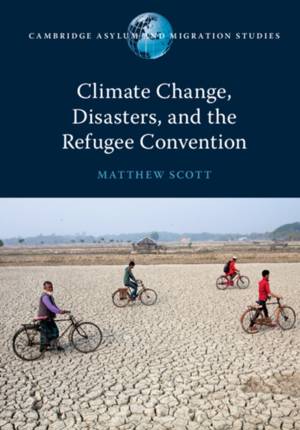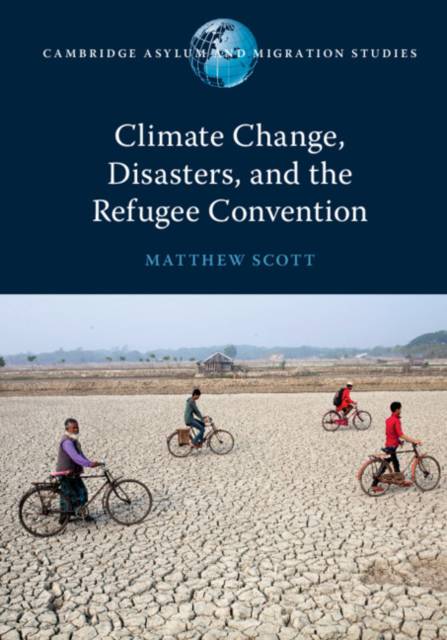
- Afhalen na 1 uur in een winkel met voorraad
- Gratis thuislevering in België vanaf € 30
- Ruim aanbod met 7 miljoen producten
- Afhalen na 1 uur in een winkel met voorraad
- Gratis thuislevering in België vanaf € 30
- Ruim aanbod met 7 miljoen producten
Zoeken
Omschrijving
Climate Change, Disasters and the Refugee Convention is concerned with refugee status determination (RSD) in the context of disasters and climate change. It demonstrates that the legal predicament of people who seek refugee status in this connection has been inconsistently addressed by judicial bodies in leading refugee law jurisdictions, and identifies epistemological as well as doctrinal impediments to a clear and principled application of international refugee law. Arguing that RSD cannot safely be performed without a clear understanding of the relationship between natural hazards and human agency, the book draws insights from disaster anthropology and political ecology that see discrimination as a contributory cause of people's differential exposure and vulnerability to disaster-related harm. This theoretical framework, combined with insights derived from the review of existing doctrinal and judicial approaches, prompts a critical revision of the dominant human rights-based approach to the refugee definition.
Specificaties
Betrokkenen
- Auteur(s):
- Uitgeverij:
Inhoud
- Aantal bladzijden:
- 206
- Taal:
- Engels
- Reeks:
Eigenschappen
- Productcode (EAN):
- 9781108747127
- Verschijningsdatum:
- 12/03/2020
- Uitvoering:
- Paperback
- Formaat:
- Trade paperback (VS)
- Afmetingen:
- 178 mm x 244 mm
- Gewicht:
- 362 g

Alleen bij Standaard Boekhandel
+ 121 punten op je klantenkaart van Standaard Boekhandel
Beoordelingen
We publiceren alleen reviews die voldoen aan de voorwaarden voor reviews. Bekijk onze voorwaarden voor reviews.











